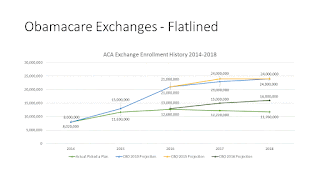■ Medical Mutual of Ohio is enhancing its autism coverage for many of its insureds "on the spectrum." I've already reached out to one client that I know of who's likely to benefit from this.
Coverage enhancements include speech, language and occupational therapy, as well as screening and diagnosis benefits.
Yasher koach.
■ Last time we looked at the burgeoning Life Settlements industry, I mentioned my own uneasiness with the concept:
"It's not that I have any particular ethical qualms; after all, it's my client's policy, so why should I care? It just feels ... weird to bring this up."
But our friend Allison Bell reports from that industry's annual convention that they're facing an equally difficult challenge:
"Life insurers and life settlement firms are struggling to comply with new tax reporting rules without an official tax form, a draft tax form, or a clear idea of what the Internal Revenue Service might like to see."
Turns out, even though viaticals have been deemed 'kosher' for some 20 years, their fraternal twin Life Settlements are facing different tax treatment (which makes sense, one supposes), and the IRS still hasn't gotten around to providing a fix.
Whether or not that will prove an insurmountable obstacle remains to be seen.
■ And speaking of relatively new, burgeoning industries, I've been spending a lot of time lately educating folks on the Direct Primary Care model (since I no longer sell ACA-compliant health plans, and still want to provide some service to clients). The challenge is that I really didn't know where to send folks for local DPC practices.
Now, thanks to FoIB John Chamberlain, I've been clued in to this helpful site which offers an interactive map of nearby DPC's.
Nice!
Coverage enhancements include speech, language and occupational therapy, as well as screening and diagnosis benefits.
Yasher koach.
■ Last time we looked at the burgeoning Life Settlements industry, I mentioned my own uneasiness with the concept:
"It's not that I have any particular ethical qualms; after all, it's my client's policy, so why should I care? It just feels ... weird to bring this up."
But our friend Allison Bell reports from that industry's annual convention that they're facing an equally difficult challenge:
"Life insurers and life settlement firms are struggling to comply with new tax reporting rules without an official tax form, a draft tax form, or a clear idea of what the Internal Revenue Service might like to see."
Turns out, even though viaticals have been deemed 'kosher' for some 20 years, their fraternal twin Life Settlements are facing different tax treatment (which makes sense, one supposes), and the IRS still hasn't gotten around to providing a fix.
Whether or not that will prove an insurmountable obstacle remains to be seen.
■ And speaking of relatively new, burgeoning industries, I've been spending a lot of time lately educating folks on the Direct Primary Care model (since I no longer sell ACA-compliant health plans, and still want to provide some service to clients). The challenge is that I really didn't know where to send folks for local DPC practices.
Now, thanks to FoIB John Chamberlain, I've been clued in to this helpful site which offers an interactive map of nearby DPC's.
Nice!


















